CAA News Today
SCOTUS Ruling on Affirmative Action: CAA ED Response
posted Jun 30, 2023
The US Supreme Court ruling invalidating race-conscious admissions considerations at colleges and universities is antithetical to CAA’s mission, specifically our commitment to the diversity of practices and practitioners in the visual arts and academia. This is another in a series of blows to the field, the reverberations of which will be felt for generations to come.
Justice Clarence Thomas dismissing affirmative action policies at universities as “rudderless, raced-based preferences” demonstrates a deliberate suppression of the entire history of institutional racism in this country, which by design actively obstructs opportunity and access for so many.
Now more than ever, we must come together as an organization and develop alternative strategies for ensuring equity and representation in a meaningful way, without performativity or tokenism. Even with affirmative action policies in place, many important voices were relegated to the margins; this ruling will only serve to repress them further. We have a responsibility to continue fighting to center and amplify such voices.
Despite this current era of national regression in the realm of human rights, I still have faith we can have an impact, learn from a problematic past, and reshape the future of the field. Join me in continuing to transform pain into purpose.
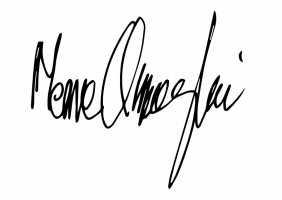
Meme Omogbai
Executive Director & CEO
CAA | Advancing Art and Design
CWA Picks: Summer 2023
posted May 31, 2023
CAA’s Committee on Women in the Arts (CWA) curates a seasonal list of must-see exhibitions. The CWA Summer 2023 picks highlight the rich contributions of women-identifying African, Latinx, and Indigenous artists, bringing their voices to the forefront. These artists explore the legacies of their respective mediums and their enduring significance in contemporary art. Unafraid to tackle pressing social issues, their works offer a powerful lens through which to examine themes of gender, sexuality, race, and ethnicity. By amplifying marginalized perspectives, these exhibitions provoke meaningful conversations and challenge existing narratives in the art world.
Tender Loving Care
July 22, 2023–July 28, 2025
Museum of Fine Art, Boston
This exhibition explores the theme of care through contemporary art. The act of creating and appreciating art is a form of care, and the exhibition highlights how artists address this concept through their materials, ideas, and processes. The exhibition showcases around 100 works from the museum’s collection, organized into five thematic groupings: threads, thresholds, rest, vibrant matter, and adoration. Examples of care in art can be seen in Gisela Charfauros McDaniel’s portrait of her mother, Nick Cave’s Sound Suit, and textiles and fiber art by Sheila Hicks, Howardena Pindell, and Jane Sauer. Through these works and others, visitors are invited to consider how care can inspire new models for living and feeling in the present and the future.
Creativity in the Time of COVID-19: Art as a Tool for Combatting Inequity and Injustice
August 25–September 30, 2023
Buffalo NY: Squeaky Wheel, Buffalo Arts Studio + Buffalo Game Space
In collaboration with the Andrew W. Mellon Foundation, Michigan State University, and SUNY Buffalo’s Amatryx Lab & Studio, this exhibition features a range of BIPOC, LGBTQ+, and Buffalo-based artists and creatives to center marginalized experiences of the pandemic and social justice concerns.
Black Venus
Through August 20, 2023
Museum of the African Diaspora, San Francisco
BLACK VENUS, curated by Aindrea Emelife is an exhibition that surveys the legacy of Black Women in visual culture – from fetishized, colonial-era caricatures to the present-day reclamation of the rich complexity of Black womanhood by 18 artists (of numerous nationalities and with birth years spanning 1942 to 1997). This exhibition is a celebration of Black beauty, an investigation into the many faces of Black femininity and the shaping of Black women in the public consciousness – then and now.
In BLACK VENUS, archival depictions of Baartman and other historical Black women pair with the vibrant, narrative portraiture by some of today’s most influential Black image-makers whose work deals with layered narratives of Black femininity.
This exhibition reckons with difficult visual histories. It features some themes and images that are derogatory and many that are empowering. Sensitive visitors should be aware that several artists in the exhibition employ nudity and sexual imagery to explore their ideas.
Amalia Mesa-Bains: Archeology of Memory
Through August 13, 2023
UC Berkeley Art Museum and Pacific Film Archive (BAMPFA), Berkeley
Amalia Mesa-Bains: Archaeology of Memory is the first retrospective exhibition of the work of longtime Bay Area artist Mesa-Bains. Presenting work from the entirety of her career for the first time, this exhibition, which features nearly 60 works in a range of media, including fourteen major installations, celebrates Mesa-Bains’s important contributions to the field of contemporary art locally and globally.
Shaped by the Loom: Weaving Worlds in the American Southwest
Through July 9, 2023
Bard Graduate Center, NYC
Shaped by the Loom: Weaving Worlds in the American Southwest invites you to explore the world of Navajo weaving. This dynamic gallery and online experience presents never-before-seen textiles created by Diné artists. These historic blankets, garments, and rugs from the American Museum of Natural History are situated alongside contemporary works by Diné weavers and visual artists, such as Barbara Teller Ornelas and Lynda Teller Pete. Shaped by the Loom highlights seasonal cycles that guide the harvesting of dye plants, the cosmologies that inform a weaver’s work, and the songs, stories, and prayers that are woven into every piece. The items in the exhibition will be accompanied by artist interviews, interactive storytelling, and stunning panoramic views of the Navajo Nation. Shaped by the Loom elevates the voices of Indigenous artists and makers to express the cultural legacy and continued vibrancy of weaving traditions in the American Southwest.
The Figure, Reclaimed
A Renaissance of the female body in visual culture
July 5–August 4, 2023
Carolla Arts Exhibition Center, Missouri State University
Throughout the history of visual culture, figurative painting has been regarded as one of the highest forms of Western art. Dazzling displays of hyper-realistic anatomical mastery and expansive narrative scenes depicting multiple figures through complex perspectives dominated as the pinnacle of art-making for centuries. While the artists of these historic images were all white male painters, it was the female body that was often leveraged for these narratives. Further, female artists were also excluded from painting these historic scenes and denied access to nude models to even attempt to study the art of figural painting.
The Figure, Reclaimed, seeks to celebrate and explore the Renaissance of the female body and the female figurative painter in visual culture. Through the work of Aneka Ingold and Livia Xandersmith, this exhibition explores how female figurative painters have combined the traditional art of figurative painting with contemporary, stylized approaches to redefine and expand upon what it means to be a figurative painter, ruminate on the female experience, and how representations of the female body are consumed.
As women face losing bodily autonomy in today’s contemporary society, what does it mean to be a female figurative painter in today’s context? What stories must be told on the scale of figurative painting about what it means to identify as a woman today? Why is the female body a contested landscape, and why does this form hold a sense of home base for visual culture? Is it the embodied connection to humanity and life?
Madeleine Hunt-Ehrlich: Too Bright to See
Perez Art Museum, Miami
Through January 7, 2024
Madeleine Hunt-Ehrlich (b. 1987) is a filmmaker and artist whose work blends narrative and documentary traditions to explore stories and experiences of Black women in the Americas.
Hunt-Ehrlich’s experimental narrative artwork Too Bright to See (Part I) draws on her extensive research on the legacy of Suzanne Roussi-Césaire, a writer and anticolonial and feminist activist from Martinique who, along with her husband, Aimé Césaire, was at the forefront of the Négritude movement during the first half of the 20th century. Roussi-Césaire would also become an important Surrealist thinker, influencing the likes of painter Wifredo Lam and writer André Breton. However, despite her critical contributions to Caribbean thought and Surrealist discourse, until recently much of her work was overlooked.
Too Bright to See (Part I) weaves archival materials with cinematic narrative scenes filmed with an unconventional and modern cast. Drawing inspiration from Caribbean aesthetics and Surrealist artwork, this film installation brings attention to new aspects of Roussi-Césaire’s legacy that are undocumented in the public arena, while addressing the broader question of the continued erasure of women from historical accounts.
Carrie Mae Weems: Reflections for Now
Barbican Art Gallery, London
June 21–September 3, 2023
Opening 22 June 2023, Barbican Art Gallery is proud to present the first major solo exhibition of Carrie Mae Weems in a UK institution. Widely considered to be one of the most influential American artists working today, Weems (b.1953) is celebrated for her exploration of cultural identity, power structures, desire, and social justice through a body of work that develops questioning narratives around race, gender, history, class and their systems of representation.
Highlighting her remarkably diverse and radical practice, this survey brings together an outstanding selection of photographic series, films, and installations spanning over three decades, many of which have never been seen before in the UK. Presenting the development of her unique poetic gaze and formal language from the early 1990s to the present day, this exhibition reflects on Weems’s pioneering career. On display are works from her early iconic Kitchen Table Series (1990) which explores how power dynamics are articulated in the domestic sphere and the potential of the home as a space for resistance, to her acclaimed series Roaming (2006) and Museums (2016) where Weems’s muse confronts architecture as the materialisation of political and cultural power. Her oeuvre challenges dominant ideologies and historical narratives created by and disseminated within science, architecture, photography, and mass media.
The exhibition is accompanied by Carrie Mae Weems: Reflections for Now, the first publication devoted to the artist’s writings. It will highlight Weems’s influence as an intellectual, reflecting the dual nature of her career as an artist and activist. A public programme of events, including a programme of films in Barbican cinema, will also run throughout the course of the exhibition.
Gio Swaby: Fresh Up
Through July 3, 2023
Art Institute of Chicago
Gio Swaby is a multidisciplinary artist whose textile-based practice explores the intersections of Blackness and womanhood. Her embroidered portraits are anchored in the connections she forges with her subjects: each portrait begins with a photo shoot in which her sitters are captured in a moment of self-awareness and empowerment. In her textile interpretations, Swaby foregrounds their hair, clothing, and jewelry—highlighting and celebrating the subjects’ use of fashion as unapologetic self-definition and self-expression.
This exhibition—Swaby’s first solo museum show—brings together seven of Swaby’s series from 2017 through 2021, such as My Hands Are Clean, Love Letters, and Pretty Pretty, along with approximately 15 new works, including her largest work to date, a commission for the US Embassy in Nassau, Bahamas. The title of the show, Fresh Up, developed with the artist, is a Bahamian phrase often used as a way to compliment someone’s style or confident way of being. Swaby has remarked, “It holds a lot of positivity and joy. It also speaks to the tone of confidence and power that I want to create with these works. I love that it is a way to form connections through a simple phrase.”
Lynn Hershman Leeson: Phantom Limb
Through July 8, 2023
Altman Seigel, San Francisco
Altman Siegel proudly presents a historical exhibition of works from Lynn Hershman Leeson’s Phantom Limb series, which was created in the 1980s. At the time that it was created, the Phantom Limb collages illustrated the more insidious impacts of mass media and technology on women’s bodies. Created prior to the advent of Photoshop, this body of work borrows from the visual language of advertising, fusing female forms with technology. Seductively posed women merge with cameras, TV screens, and electrical plugs, pointing to ways in which gendered mass media representations shape and distort women’s self-image. At once alluring and disarming, these black-and-white photo collages grapple with the absorption of female identity into modern media at a time when the depths of this issue were just beginning to be explored.
In this series Hershman Leeson was already musing on the implications of surveillance when she describes cameras as a “capture system”:
“This photographic series…suggests that we are not only being watched by surveillance systems, but that ‘capture’ systems are endemic to our society. The series questions individual complicity in a system that simultaneously steals images and warps personal identity. The seductive alliance of surveillance and capture inspired the sexually provocative positions in the anthropomorphic images.” – Lynn Hershman Leeson
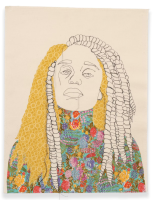
My Hands Are Clean 4, 2017 Gio Swaby. Courtesy of Claire Oliver and Ian Rubinstein. © Gio Swaby
caa.reviews Seeks Field Editors in Ten Areas
posted May 16, 2023
CAA is inviting nominations and self-nominations for individuals to join the caa.reviews Council of Field Editors for the three-year term July 1, 2023–June 30, 2026. caa.reviews is devoted to the peer review of new books, museum exhibitions, and projects relevant to art history, visual studies, and the arts. Candidates may be artists, art historians, art critics, art educators, curators, or other art professionals with stature in the field and experience writing or editing books and/or exhibition reviews; institutional affiliation is not required. caa.reviews is seeking Field Editors in the following fields:
- Architectural History, Urban Planning, Historic Preservation, Landscape Architecture
- South and Southeast Asian Art
- Indigenous Art
- Early Modern European Art (South)
- Nineteenth-Century Art
- Twentieth-Century Art
- Contemporary Art
- Cinema, Media, and Performance
- Exhibitions: Northeast
- Exhibitions: New York
Working with the caa.reviews editor-in-chief, the caa.reviews Editorial Board, and CAA’s staff editor, each field editor selects content to be reviewed, commissions reviewers, and considers manuscripts for publication. Field editors for books are expected to keep abreast of newly published and important books and related media in their fields of expertise, and those for exhibitions should be aware of current and upcoming exhibitions (and other related projects) in their geographic regions.
The Council of Field Editors meets once a year in February during the Annual Conference (although attendance at the conference is not necessary to participate in the meeting). Members of all CAA committees and editorial boards volunteer their services without compensation.
Candidates must be current CAA members and should not be serving on the editorial board of a competing journal or on another CAA editorial board or committee. Nominators should ascertain their nominee’s willingness to serve before submitting a name; self-nominations are also welcome.
Interested applicants—both self-nominated or nominated by someone else—should submit a CV and a cover letter in a single PDF document to ebell@collegeart.org.
Deadline: June 15, 2023
Nominations Open for CAA Juries
posted May 11, 2023
CAA invites nominations and self-nominations for individuals to serve on our Awards for Distinction, Publication Grant, Fellowship, and Travel and Support Grant juries. Terms begin July 2023.
Candidates must possess expertise appropriate to the jury’s work and be current CAA members. They should not hold a position on a CAA committee or editorial board beyond May 31, 2023. CAA’s president and vice president for committees appoint jury members for service. Materials are due to CAA by June 1, 2023.
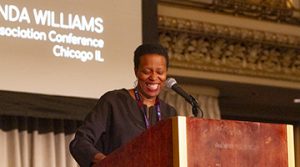
Amanda Williams speaks at Convocation at CAA’s 108th Annual Conference in Chicago
AWARDS FOR DISTINCTION JURIES
CAA has vacancies in the following juries for the annual Awards for Distinction for three years (2023–2026). Terms begin in July 2023.
- Art Journal Award (1 vacancy)
- The Alfred H. Barr Jr. Award/Alfred H. Barr Jr. Award for Smaller Museums, Libraries, Collections, and Exhibitions for museum scholarship (2 vacancies)
- Charles Rufus Morey Book Award for non-catalogue books in the history of art (1 vacancy)
- Frank Jewett Mather Award for art criticism (2 vacancies)
- Arthur Kingsley Porter Prize for Art Bulletin articles (1 vacancy)
- The CAA/American Institute for Conservation Award for Distinction in Scholarship and Conservation (1 vacancy)
- Jury for the Artist Award for Distinguished Body of Work, Distinguished Artist Award for Lifetime Achievement, and Distinguished Teaching of Art Award (1 vacancy)
- Excellence in Diversity Award (3 vacancies)
- Distinguished Feminist Awards for Scholars and Artists (1 vacancy)
FELLOWSHIP AND SCHOLARSHIP JURIES
CAA has vacancies on our Professional Development Fellowship juries for three years (2023–2026). Terms begin in July 2023.
- Professional Development Fellowships for Art History (2 vacancies)
- Professional Development Fellowships for Visual Art, CAA-GOLDEN Scholarship Program, and Michael Aurbach Fellowship for Excellence in Visual Art (3 vacancies)
TRAVEL/SUPPORT GRANT JURIES
CAA has vacancies on our jury for three years (2023–2026). Terms begin in July 2023.
- Art History Fund for Travel to Special Exhibitions (3 vacancies)
HOW TO APPLY
Nominations and self-nominations should include a brief statement (no more than 150 words) outlining the individual’s qualifications and experience and a CV (an abbreviated CV no more than two pages may be submitted). Please send all materials by email to Cali Buckley: cbuckley@collegeart.org. Nominations must be sent as a Microsoft Word or Adobe PDF attachment.
For questions about jury service and responsibilities, contact cbuckley@collegeart.org.
Deadline: June 1, 2023
Join the CAA Board of Directors!
posted May 01, 2023
CAA seeks nominations of individuals passionate about shaping the future of the organization by serving on the Board of Directors for the 2024–2028 term. The board is responsible for all financial and policy matters related to CAA, promoting excellence in scholarship, and encouraging creativity and technical skills in design and art practice. CAA’s board is also charged with representing the membership regarding current issues affecting the visual arts and humanities.
Nominations and/or self-nominations must include the following:
- Résumé/CV
- Brief statement of interest (250 words maximum)
- Nominee’s name, affiliation, and e-mail address
- Name, affiliation, and e-mail address of nominator (if different from nominee)
Please send all information and/or any questions via e-mail to Maeghan Donohue, CAA Chief of Staff & Director of Strategic Planning, Diversity, and Governance, with the subject line: Board of Directors Nomination.
Deadline: July 10, 2023.
Meet the Spring 2023 Millard Meiss Publication Fund Grant Recipients
posted May 01, 2023
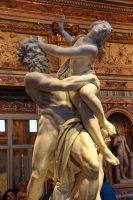
Caption: Gian Lorenzo Bernini, The Rape of Proserpina, 1661–1662, Burkhard Mücke via Wikimedia Commons CC BY-SA 4.0
Twice a year, CAA awards grants through the Millard Meiss Publication Fund to support book-length scholarly manuscripts in the history of art, visual studies, and related subjects that have been accepted by a publisher on their merits, but cannot be published in the most desirable form without a subsidy.
Thanks to the generous bequest of the late Prof. Millard Meiss, CAA began awarding these publishing grants in 1975.
Spring 2023 Grantees
Doris Sung, Women of Chinese Modern Art Gender and Reforming Traditions in National and Global Spheres, 1900s–1930s, De Gruyter
Kristopher Kersey, Facing Images: Problems of Modernity in Japanese Art, Penn State University Press
Andrew Gayed, Queer World Making: Contemporary Middle Eastern Diasporic Art, University of Washington Press
Lee Sessions, Urgent Necessities: Science and White Identity in Colonial Cuba, Yale University Press
Saul Nelson, Never Ending: Modernisms Past and Future, Yale University Press
Ellen C. Caldwell, Cynthia S. Colburn, and Ella J. Gonzalez, eds., Gender Violence, Art, and the Viewer: An Intervention, Penn State University Press
Hye-shim Yi, Art by Literati: Calligraphic Carving in Middle Qing China, Cambria Press
Read a list of all recipients of the Millard Meiss Publication Fund since 1975.
CAA Staff Spotlight: Mira Friedlaender
posted Mar 10, 2023
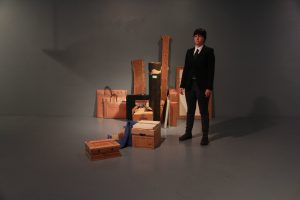
On Guard, performance centering on the installation of long-stored objects from the Bilge Civelekoglu Friedlaender Estate, FiveMyles, Brooklyn, 2014.
Mira Friedlaender is CAA’s Senior Manager of Annual Conference and Programs. Since joining CAA in 2018, Mira has worked with a significant portion of members (new and returning!) and continues to do so each year to support their participation in conference sessions and events. She produces the event with CAA staff, committees, and partners, attending to myriad details while also working to refine and reshape the conference each year in support of CAA’s long-term strategic goals. Mira was previously an exhibition manager for nonprofits such as No Longer Empty and HappyLuckyNo1. She also worked in television production and co-owned a restaurant in Brooklyn, New York.
As an artist and independent scholar of art stewardship, Mira has exhibited locally and internationally, and her work has been featured in the New York Times and Bomb. She has held residencies at the American Center in Bangladesh and Recess in New York. She is the Director of the Bilge Friedlaender Estate, was a fellow in the Art & Law Program, and cocurated Bilge Friedlaender: Words, Numbers, Lines in Istanbul.
“Since her death, I’ve been stewarding the art my mother Bilge Friedlaender (née Civelekoglu) made, beginning more actively in 2014 with my project at Recess, which was still in Soho at that time. I’ve contributed to the scholarship on artist estates through this work and through knowledge sharing; as an artist and artist’s heir I am most interested in performing an emotional institutional critique of the challenges artist-stewards face, particularly those without infinite resources,” explains Mira.
Curated by Işın Önol, Bilge Friedlaender’s never-before-seen works from the 1970s are on view now at Sapar Contemporary in New York City through April 10. Bilge’s work occupies a unique place in the Turkish and Middle Eastern modernist tradition as well as in the history of twentieth-century American art, especially the soulful minimalism of 1970s—not unlike the work of Zarina Hashmi, Etel Adnan, and Huguette Caland. Bilgé’s minimalism is infused with Sufi mysticism, sacred numerology, and reverence for nature and the divine feminine. Her spiritual feminism evolved into an overt ecofeminism as she grew older.
“My mother left Turkey in 1958 to come to the US and be an artist, and she exhibited until her death. Since 2015 there has been a museum show of her work in Istanbul and there have been subsequent opportunities for Bilge’s work, but this is the first time her work has been shown in New York City since 1981. This is a big step for the estate. Next, we are looking to travel this incredible selection of the works on paper and artist books with the goal of expanding the scholarship around Bilge’s artworks and extensive writings.”
Join Mira and curator Işın Önol in conversation with guests on April 4, 6 p.m. ET, at Sapar Contemporary.
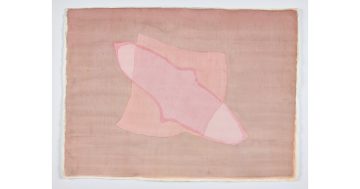
Bilge Friedlaender, Weightless Pink, 1975
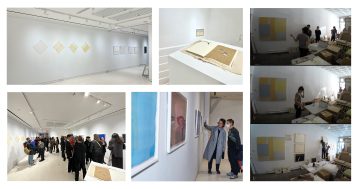
Bilgé: Lifespan of a Horizontal Line, Sapar Contemporary, 2023, and, right column, Half of What’s There, Recess Art, 2014
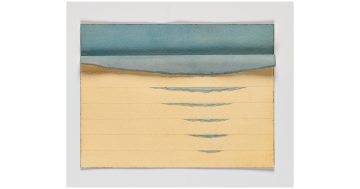
Bilge Friedlaender, Tides Time II, 1975
CAA Signs ACLS Statement on Florida House Bill 999
posted Mar 07, 2023
CAA has signed on to a statement issued by the American Council of Learned Societies (ACLS) regarding Florida HB 999. This bill would radically shift Florida’s approach to higher education in a manner that negatively impacts diversity and academic freedom; this is antithetical to CAA’s mission.
CAA stands with ACLS, together with other academic societies, and shares their belief that, if passed, the bill “ends academic freedom in the state’s public colleges and universities, with dire consequences for their teaching, research, and financial well-being.”
The full ACLS statement on Florida HB 999 can be viewed here. CAA encourages individual and institutional members to visit the ACLS website and sign on to the ACLS statement, as well as contact legislators, write op-eds, and proliferate information on social media to fight this bill.
Other learned societies and higher education institutions who have signed the ACLS statement:
American Academy of Religion
American Anthropological Association
American Association for Italian Studies
American Folklore Society
American Historical Association
American Musicological Society
American Philosophical Association
American Political Science Association
American Society for Environmental History
American Sociological Association
Association for Slavic, East European, and Eurasian Studies
Association for the Study of African American Life and History
Association of University Presses
College Art Association
German Studies Association
Latin American Studies Association
Linguistic Society of America
Medieval Academy of America
Modern Language Association
National Council of Teachers of English
National Council on Public History
National Women’s Studies Association
Organization of American Historians
Rhetoric Society of America
Sixteenth Century Society & Conference
Society for Ethnomusicology
Society for Music Theory
Society for the History of Technology
Society of Biblical Literature
World History Association
CAA has also signed on to a Florida HB 999 statement issued by the American Historical Association (AHA) which can be viewed here.
Other organizations who have signed the AHA statement:
African American Intellectual History Society
American Anthropological Association
American Association for the History of Medicine
American Association of University Professors
American Folklore Society
American Philosophical Association
American Society for Environmental History
American Sociological Association
Association for Slavic, East European, and Eurasian Studies
Association for the Study of African American Life and History
Association of Ancient Historians
Association of University Presses
Berkshire Conference of Women Historians
Black Heritage Trail of New Hampshire
Central European History Society
College Art Association
Committee on LGBT History
Conference on Latin American History
Executive Committee of the Czechoslovak Studies Association
French Colonial Historical Society
German Studies Association
H-France
Historians for Peace and Democracy
Immigration and Ethnic History Society
Kurt Vonnegut Museum and Library
Labor and Working Class History Association
LGBTQ History Museum of Central Florida
Linguistic Society of America
Medieval Academy of America
National Association of Diversity Officers in Higher Education
National Council on Public History
National Council of Teachers of English
New England Historical Association
North American Conference on British Studies
North American Society for Oceanic History
Organization of American Historians
PEN America
Polish American Historical Association
Radical History Review
Roy Rosenzweig Center for History and New Media
Shakespeare Association of America
Social Welfare History Group
Society for Austrian and Habsburg History
Society for French Historical Studies
Society for Historians of the Gilded Age and Progressive Era
Society for Textual Scholarship
Society for the History of the Early American Republic
Society for the History of Technology
Society for the History of the Early American Republic
Society for U.S. Intellectual History
Southern Historical Association
Texas Institute of Letters
Tully Center for Free Speech at Syracuse University
Western Society for French History
Woodhull Freedom Foundation
World History Association
Meet the Michael Aurbach Fellowship for Excellence in Visual Art Inaugural Recipient and Honorable Mentions
posted Mar 07, 2023
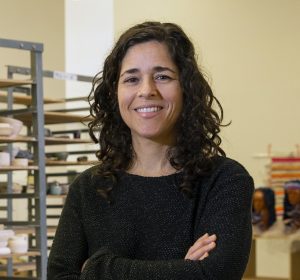
CAA is pleased to announce the first ever recipient of the first Michael Aurbach Fellowship for Excellence in Visual Art: Lauren Sandler.
Lauren Sandler is a ceramic artist and educator whose work deconstructs mythologies and investigates narratives of power and perspective. Sandler exhibits nationally, and gives talks, workshops, and publishes work concerning contemporary and historic issues in ceramics. She holds an MFA in Ceramics from Penn State University, and undergraduate degrees in Anthropology and Ceramics from Ithaca College and SUNY New Paltz. She served on the Board of the National Council on Education for the Ceramic Arts as Director at Large from 2019–22 and is currently Associate Professor and Program Head of Ceramics at Tyler School of Art and Architecture at Temple University.
HONORABLE MENTIONS
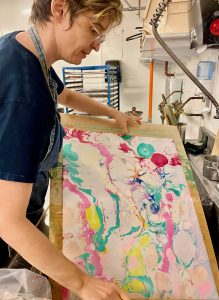
Ellen Wetmore, University of Massachusetts Lowell
Ellen Wetmore is a Professor of Art and Chair of the Department of Art and Design at the University of Massachusetts, Lowell. She is a graduate of the University of Michigan (BFA, BA in Art History) and Tufts University/School of the Museum of Fine Arts (MFA), and joined UMass Lowell in 2007. She is a participant of CAA, UFVA, Cultivamos Cultura, and past member of the Boston Sculptors Gallery. Her awards include a 2017 Berkshire Taconic ART Fellowship and a 2017 Massachusetts Cultural Council Fellowship. Her social concerns include neuro-atypical disabilities, race and teaching, money and art. Wetmore’s current artistic practice reinterprets history, art history, and investigates visual thinking. Wetmore’s projects have been featured at the Boston Cyberarts Art on the Marquee, the Indianapolis Art Center, the Sandwell Arts Trust, Ciné Lumière, London, CologneOff, Germany, the InShadow Festival, Lisbon, and Videoholica in Bulgaria. She is a 2012 School of the Museum of Fine Arts Traveling Fellow and a summer 2015 visiting artist at the American Academy of Rome. Her most recent solo exhibition was a drawing study of the collection at the Fitchburg Art Museum. Her current science collaborations explore printed, fabric-based video displays, text and memory in fat cells, and the characterization of high fire ceramic glazes in a Cambodian wood fired kiln. Her first graphic novel, Dante’s Inferno, is a fictional account of race and the academic hiring process.
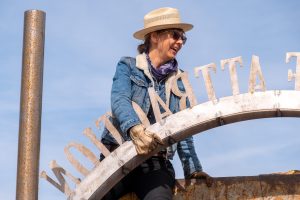
Allison Wiese, University of San Diego
Allison Wiese is an interdisciplinary artist who makes sculptures, installations, sound works, performances, and architectural interventions. Her work is often created for public spaces at the boundaries of or outside institutions, and has been exhibited at, among other venues, Machine Project, Los Angeles, the Museum of Contemporary Art, San Diego and Socrates Sculpture Park, New York. She is the recipient of a Louis Comfort Tiffany Award and has received grants from Art Matters, Creative Capital, the Cultural Arts Council of Houston, and the City of San Diego’s Commission for Arts and Culture. A fellow of MacDowell and an alumna of the Skowhegan School of Painting and Sculpture, Wiese was a Core Fellow of the Museum of Fine Arts, Houston, received her MFA from the University of California, San Diego, and a BA from Brown University. Wiese is an Associate Professor at the University of San Diego.
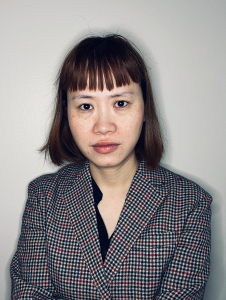
Ziui Vance, Temple University
Ziui explores the semiotics of bodies, their chaotic signals, and spatiality. She makes the paintings, objects, and installations inside the disputed realm between affection and dominance, rules and reality. Characterized by a play-like process, Ziui describes a variety of body configurations with an intricate intensity that reflected on gender, ethnicity, and perceptions: an infinite tapestry of imagery associated with her exoneration from the polar complexities of being Chinese in the United States.
ABOUT THE FELLOWSHIP
The Michael Aurbach Fellowship for Excellence in Visual Art recognizes and honors CAA members who have obtained an MFA or equivalent in studio art and are currently teaching studio classes full-time or part-time. The purpose is to support these artist members as they fulfill their goals as visual arts professionals. On an annual basis, CAA will grant a $7,500 award and registration to the CAA Annual Conference to a qualified artist member teaching at an American or international university or community college. A jury of artists will adjudicate the fellowship and a proposal will not be required; the recipient will be selected solely based on their work. Learn more.
CWA Picks: Spring 2023
posted Mar 06, 2023
The CAA Committee on Women in the Arts (CWA) Spring Picks focus on exhibitions and literature that explore an interrelatedness of art and science. From the science of future technology to the science of biology, these artists utilize traditional and technological materials in their heterogeneous work.
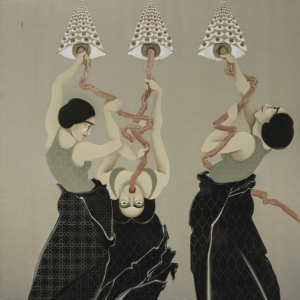
Hayv Kahraman, Eye megaphones, 2023, Oil and torshi on linen, 177.8 x 177.8 x 6.4 cm
Hayv Kahramen, February 6 – March 25
Third Line Gallery, Dubai
Occupying both gallery spaces, Hayv Kahraman presents a series of new paintings and drawings that continue her ongoing scientific research and exploration into the effects of trauma on the body, and the role of the gut in our healing process.
Kahraman’s practice is heavily guided by her refugee experience, where notions of gender and trauma are consistent themes throughout her work. Recently, the artist has directed her research towards neuroscience, human immunology and “neurosculpting” – the ability to restructure the neural pathways in our brain through the gut microbiome – and how they specifically relate to trauma, and our ultimate goal to heal and repair.
Often referred to as the body’s “second brain”, the gut is responsible for our somatic state whereby the bacteria inside our gut regulates the hormones that control our feelings. Kahraman became increasingly fascinated with this theory, and how neurosculpting offers the potential to heal through the process of unlearning and relearning. In this body of work, Kahraman applies this theory alongside her own lived experiences to highlight the puissant connection between the mind and the body. Exposed and tangled digestive organs act as a visual metaphor of unraveling the restorative process.
Delving further into the gut microbiome as a site for recognition and renewal, Kahraman addresses the notion of “otherness” through the medium in which she paints. We have learnt to consider the bacteria and foreign microbes found inside our gut as undesirable, but in fact they are fundamental to our human psyche. By incorporating into her paintings the lilac dye from torshi – fermented beetroot served in Middle Eastern cuisine which is believed to improve mental wellbeing via the gut, and jars of which are on view in the exhibition – Kahraman affirms that the microbial world is verification of our acceptance of difference. Physically painting with torshi – i.e. bacteria – serves as an allegory to how we sentient beings live in symbiosis with the “other”.
Sarah Sze, March 31 – September 10
Solomon R. Guggenheim Museum, NY
Organized by Kyung An, Associate Curator, Asian Art, and was conceived and contributed to by Nancy Spector, former Jennifer and David Stockman Chief Curator.
The Solomon R. Guggenheim Museum will present a solo exhibition of Sarah Sze (b. 1969, Boston) featuring a series of site-specific installations by the acclaimed New York–based artist. Sarah Sze: Timelapse will unravel a trail of discovery through multiple spaces of the iconic Frank Lloyd Wright building, from the exterior of the museum to the sixth level of the rotunda and the adjacent tower level gallery. The exhibition will explore Sze’s ongoing reflection on how our experience of time and place is continuously reshaped in relationship to the constant stream of objects, images, and information in today’s digitally and materially saturated world.
Sze creates across multiple mediums employing painting, sculpture, drawing, printmaking, video, and installation. She is well known for her intricate constructions using a myriad of both fabricated and found objects and images. Whether an intimately scaled sculpture or a large, permanent public commission, her works possess a generative quality—as though in a cycle of growth and decay—and dynamically engage with the spaces they occupy.
In Sze’s reimagination, the Guggenheim’s iconic, UNESCO World Heritage architecture becomes a public timekeeper in a reminder that timelines are built through shared experience and memory. In the words of the artist, “Like the collective efforts used by humans over centuries to communally mark time, to measure and mark it in physical form—ranging from Jantar Mantar, to the Prime Meridian line, to ubiquitous minarets, clock towers, and animated or astronomical clocks around the world—the museum building will become a site to explore the idea of a public clock, and an experiment in collective timekeeping that all in the city can experience.”
Inside the museum, quiet gestures, such as a single pendulum hovering above the fountain on the rotunda floor and a small sculptural installation tucked into an interstitial space in front of the freight elevator, demonstrate Sze’s distinct engagement with unexpected spaces. Visitors will enter an immersive environment: a panoramic sequence of eight bays occupied by a new series of works comprising painting, sculpture, video, drawing, and sound. These will be connected by a river of videos—seen earlier on the building’s street-level facade—which slowly travels up the spiral expanse of the building’s interior, creating a horizon line of moving images. As it travels across, above, and behind the works on view, visitors will be absorbed into a generative experience, continually re-orienting themselves temporally and spatially.
Kopotu Ipikosi (And They Overcame)
Pamela Enyonu, February 28 – March 28
AKKA Projects, Dubai
What is Fear?
Why do we Fear equality?
How does this Fear of achieving equality express itself in and around me?
This artistic essay is an exploration of the phenomenon of fear, and the positions it is experienced from; the instigation of fear and the effects it has on individual bodies and entire communities. What are the elements that create fear, how do the instigators of fear experience it and weaponise fear to curtail autonomy, and how is this activity systemised because it grows in scope and effectiveness; mass hysteria.
The artistic intervention aims to assess whether the effects of fear can be countered or even anticipated and to study the damage fear has on the quality of human expression. Pamela Enyonu was born in 1985 in Kampala, Uganda where she currently lives and works. Pamela studied Art and Design at the Kyambogo University Banda of Kampala, Uganda. Her artistic career started in 2017 with a 3 months residency at 32 degrees East, in Kampala, where she navigated the politics of identity, trauma, and healing. After her residency, she was invited to host a solo exhibition in June 2017. Another artist’s residency in Paris, France, followed in 2020, on the occasion of Africa 2020. In 2022, Enyonu has concluded her residency at AKKA Project in Venice, Italy, also being hosted by ProHelvetia, Zurich, Switzerland, in the same year.
Pamela’s style is inspired by stories, materials, and the process it takes to transform them into works of art. Her works present a tactile and 3-dimensional quality that richly layered textures exploring narratives on gender, identity, empowerment, and self-awareness. Pamela is particularly interested in the “untokenized” experiences occupying the intersection of empowerment, mental health, and identity. She continuously engages with the different communities through collaborations, workshops and seminars. Recently, some of Pamela’s latest works have been acquired by Africa First, and have become part of its private collection of contemporary African art.
Jennifer Chen , February 10 – April 30
Sci Arc, Los Angeles
No Evil imagines a long distant future when, after planetary scaled geoengineering systems have saved earth’s population from climate extinction, planet surviving events have become new creation stories: “machines that once filled the air, sown the seeds, fertilized the ocean, and dimmed the sun have long since been decommissioned.”
Exploring a world that was once on the brink of collapse, “saved only by the forgotten creatures of the past,” Chen is interested in using radical geoengineering processes as a lens through which we can investigate practical responses to climate restoration.
Using 2D and 3D data corrupting techniques to simulate the fading of memories across time and a mixture of analogue techniques including weaving, sewing, welding, and casting, as well as digital fabrication techniques including 3D printing and CNC milling, the exhibition combines decayed digital data and new cultural curiosities to imagine a world where new mythologies are created, giving rise to a new form of craft. Audiences will wander through an abstract forest landscape drawn from this future and encounter fragments of worship, shrines, tapestries, and stories told through film and objects. No Evil invites viewers to consider the forgotten tales, myths, and artifacts that once celebrated and revered these speculative relics of climate resistance as a reminder of what future could await us all if today, we turn a blind eye and cover our ears.
Chen is faculty at SCI-Arc and an architect and designer who works at the intersection of science and fiction, exploring themes of geoengineering, remote sensing, and climate change futures in projects that take the form of buildings, installation, film, and performance. Her new exhibition imagines a long distant future when, after planetary scaled geoengineering systems have saved earth’s population from climate extinction, planet surviving events have become new creation stories.
Tia Keobounpheng , July 22 – October 9
US Bank Gallery, The Minnesota Arts Exhibition Program
A Finnish and Sámi descendent, Keobounpheng uses her artistic practice to recognize her familial connections to both the colonizers and the colonized. “Revealing Threads” will feature her abstract tapestries, influenced by traditional Nordic handwork techniques but infused with contemporary interpretations and symbolism. The results speak to marginalized histories, heritage, and the complexity of personal identity. The works will be informed by a research trip to Sápmi, the traditional land of the Sami people, in fall 2022.
Keobounpheng is a designer/maker and artist living and working in North Minneapolis. She is a recipient of the 2017 and 2020 MN State Arts Board’s Artist Initiative Grant, 2018 McKnight Foundation’s Next Step Fund, and 2022 MN State Arts Board Creative Support for Individuals Grant. Her work has been shown at the American Swedish Institute, in Minneapolis; the Finlandia University Gallery, in Hancock, Michigan; the University of St. Thomas, in St. Paul; and the Anderson Center, in Red Wing, Minnesota. Her laser-cut jewelry has been sold by design retailers across the country for over a decade.
Fran Siegel , January 14 – March 4
Wilding Cran Gallery, Los Angeles
Curated by Jill Moniz
Chronicle features 216 small drawings on paper that Siegel started at the onset of the COVID-19 pandemic. Fran visualized the discourse around the virus as extensions of her focus on pinwheel and maps, as a shorthand of place, and the aesthetics approaching abstraction. Moniz pairs these ephemeral works with Siegel’s painted tapestries that incorporate porcelain as armatures, structural hardware that deciphers colonial appropriation and cultural production.
The exhibition offers multiple entry points into dialogues that magnify how making transforms moments, from staged and beautiful, to essential and abject. Siegel’s works are intimate in scale, reflecting how the pandemic dictated her process and inspired introspective collaging of dreams, news and opportunities, unpacking and reassembling iconography that influences how we interpret and shape our worlds.
In her consideration of patterns and pinwheels, Siegel draws out form, emphasizing how we record our relationship to each other and the landscape, and how intricately and intimately connected we are. Siegel’s pinwheels represent for Moniz a fulcrum of visual language that expands and focuses our attention on both specificity and plurality of experiences that benefit from collective empathy. Chronicle explores Moniz and Siegel’s shared commitment to the depth and complexity of cultural associations foundational to place, and meaning making through art practice.
The Art of Gilah Yelin Hirsch
Literature/publication
curated and edited by Donna Stein
A retrospective survey of the Canadian American artist’s career.
Characterized by a search for meaning, Hirsch’s oeuvre connects psychological, scientific, and philosophical implications of form, bringing together ideas in art, science, ecology, and human consciousness.
The artworks in multiple and mixed media provide an evolving history of Hirsch’s ideas and craft as they illustrate the progression of her original research on the origin of all alphabets. Her elegant theory about five fundamental shapes in nature that reflect forms of neurons and neural processes of perception and cognition as the source of all letterforms in alphabets ancient to modern has gained acceptance in scientific circles. Her evidence shows that while cultures and languages bring unique beauty and richness to the world, we, as humankind, are more alike than different.
Since the 1980s, Hirsch has also been a pioneer in the field of mind/body healing, developing a type of visualization practice that serves as an instrument toward wellness. By organizing seemingly disparate information into a far-reaching scientific theory, Hirsch is recognized internationally for these techniques and has advanced healing practices through the arts.
Archaeology of Metaphor connects the artist’s visual themes to her philosophy and ideas, simultaneously encouraging greater awareness of pattern recognition, social dynamics, and interconnectedness.
Jessi Reaves: All possessive lusts dispelled
The Arts Club of Chicago
Chicago, IL
February 16-May 20
Jessi Reaves combines iconic modernist design with an irreverent aesthetic in sculpture that toys with functionality. Reaves often begins with found furniture, which she dismantles, converts, remakes, enhances, pads, and embellishes in ways that still allow the suggestion of physical contact or use. By breaking things open, she proposes that they be examined visually and in terms of their purpose in life. The exhibition at The Arts Club of Chicago centers on the work Personal Heat, 2021, a deconstructed étagère with accompanying video that explores themes of renovation and rebellion. The sculptural aspect features a pop punk aesthetic of hot pink animal stripes, as if Reaves had been locked in a room in her great aunt’s house with a can of paint, a saw, and some wood glue. The funk and humor of this work and other of Reaves’s sculptures and wall reliefs belie a mastery of complex composition, color, and the ability to integrate disparate materials. Reaves brings to her seemingly off-handed works a range of manual skills that she uses to both humorous and unsettling effect. Jessi Reaves: all possessive lusts dispelled offers a sensuous installation of works that allow the abject to infiltrate the ontology of the object.
The Taxonomy of Peggy Macnamara
March 9–April 28, 2023
Glass Curtain Gallery—Columbia College Chicago
1104 S Wabash Ave, 1st Floor, Chicago, IL 60605
The Taxonomy of Peggy Macnamara features an immense array of artwork that has been created during Macnamara’s tenure as the only artist in residence at the Field Museum. This exhibition focuses on her relationship to observing and working among the collections over decades where practice as an artist, teacher, and collaborator has developed a process of long looking that has created a taxonomy of its own.
Macnamara has traveled across the world, geared with her pencils and watercolors, investigating the fascinating intricacies of nature alongside scientists and peers from the Field Museum. Although her work uses the academic approach of illustrating, her savvy is evident in her loose handling of her art materials to document plants, animals, and related conservation work. Macnamara’s work artfully captures living things (or in some cases—once living), educates us, and sparks interest in the complexities of the natural world.
This exhibition hones in on a tapestry of works that inspire curiosity and deep looking at plants, animals, and the dynamic relationships between them. Macanamara’s attention to detail, and skilled hand at analytically dissecting plants and animals is revealed through the works that leave the stages of the development of a piece visible. We engage with her work for the love of looking, but inevitably discussions about nature, extinction, conservation, and collections permeate its surface. Come take a peek behind the scenes of the Field Museum’s collections through Macnamara’s work, and through special tours accompanying this exhibition.
February 11-June 5th
Art Institute of Chicago
This exhibition brings together nearly 100 rarely seen woodblock prints by Pape, some of which have not been shown publicly since the artist exhibited them in the 1950s and 1960s. Composed of overlapping geometric and linear elements, they at times suggest the clash of atomic particles, rudimentary city plans, or slides of microscopic specimens.


